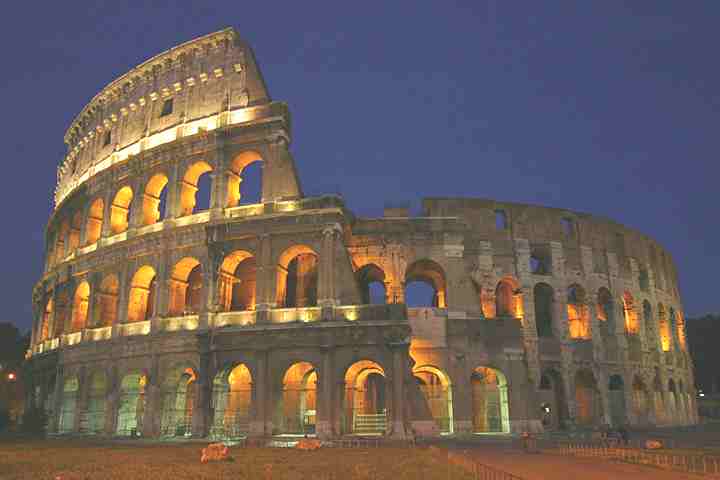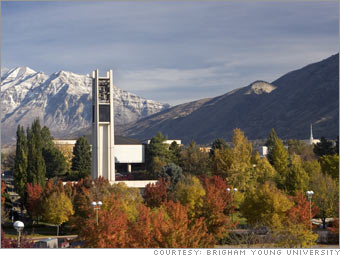
A disclaimer is probably warranted: this list is certianly incomplete, quickly thought through, and at times perhaps somewhat romanticized.
10) Strange Diseases: Italians have some fanciful ideas about fictional sicknesses that one can catch in weird ways. The two that I am most familiar with are colpo d’aria and mal di fegato. Colpo d’aria literally means hit of air. Italians, especially older Italian women, will tell you that if breeze hits you on the back of the uncovered neck, you will catch a cold. Even on hot summer days some will not allow you to open a door and a window in the same room because the resulting breeze could cause the dreaded colpo d’aria. I have been scolded more than once for failing to realize that I was creating slight air currents by opening a window or door. One especially entertaining example of this phobia came on the top of Ischia. Three of us had just reached the top all hot and sweaty when we were joined by a middle aged Italian man wearing what I only know by the French word “cagoule” – a thin hat that covers the neck and head with a large hole for the face. It was all I could do not to laugh at his precaution for the wind that often blows at the summit of climbs. Mal di fegato is just as fun as colpo d’aria: it means literally bad of liver or liver ache. Lots of things can give you liver ache: water that is too cold, water that is too hot, mixing pasta -- like putting penne and rotini in the same pot, too much oil, salty foods followed too closely by sugary foods etc. While I have never caught either of these diseases during my time in Italy, I have talked to plenty of perfectly rational Italians who are altogether convinced of their veracity – I find this so endearing.
9) Dress: Italians are vain and I love it. They look at your shoes to guess your socio-economic class, and some of them really do pour hundreds and thousands of dollars into a few articles from top designers like Gucci, Armani, Prada, Valentino, Versace etc. Even the men, perhaps especially the men, go to great lengths to care for their hair. Anecdotally, I got my hair cut in Napoli last week, and the guy out of the chair before me paid $60 for whatever he had done. On the way out, he told the barber that he would be back in 11 days. I asked if he really came back that often and the barber said of course, and that many of his clients did. Wow.
8) Beaches: I haven’t been to too many beaches, but the coolest ones I have been to have been in Italy. Just to list a few, the emerald coast in north eastern Sardegna is amazing. Lush green vegetation stops abruptly at white sand beaches that are constantly lapped by short light green water. Pescara on the Adriatic sea looks somewhat similar with miles of sandy beach stretching as far as the eye can see. Taormina on Sicily is a little rockier, but it is beautiful because of the huge cliffs that fall into the beaches just yards away from the water. Ischia has a small beach with hot springs flowing into the Mediterranean creating a unique sensation of warm water getting cooler as you swim away from the shore. Beyond the beaches themselves, there is a beach culture somewhat different from ours that is very relaxed and familial.
7) Opera: I never liked Opera before living in Italy but after a few years here it has really grown on me. The plot line of almost all operas goes something like this: a series of characters meet each other, deceive each other, fall in love, and die. While this seems simplistic perhaps, it is so Italian: highly emotive and dramatic, basically an exploration of the range of possibility in the human voice and human experience.
6) Clever Sayings and Idioms. The history of Italy is so tightly woven with the history of the Catholic church that many sayings and proverbs are related to the church: to say “too bad”, Italians say “che peccato” which means “sin”. There are scores of such examples where bible speak is integrated into Italians daily speech; however, my favorite saying comes from the heart of Rome. If someone is being two-faced, Romans unabashedly exclaim “Tu sei falso come un prete” – you are as false as a priest.
5) Museums, Churches, and other Monuments: Italy has an incomparable wealth of these as far as I know rivaled only in France and England, which it still out does. The Vatican as a whole is a remarkable masterpiece. Its museum is my favorite museum on earth with its unique blend of artifacts from the Greek and Roman world, the richest treasures of the renaissance, a wealth of gifts to the Pope from around the world, and the unforgettable Sistine chapel. Florence is remarkable; it seems to have more museums than streets, and every museum is bursting with precious art. The cathedrals in Milan, Venice, Orvieto, and of course Rome are remarkable and renowned world wide. Perhaps most amazing is that every corner you turn in Italy seems to have some treasure just waiting to tell its secrets. For example, in Genova, we ducked into a tiny little theatre to see the painted ceiling. When the man there saw our interest, he proceeded to give us a full hour tour of the small building that had a 2000 year history just as interesting and varied as her mother city’s.
4) Walks: Every Italian city, from Rome to the lowliest hamlet has a street, or several streets, designated by years of tradition as the city walk. School children, adolescents, college kids, families, couples, and the elderly all gather almost nightly around 8-10 to walk slowly up and down this street. They walk in small groups, sometimes chatting softly, but often not saying much at all, and will walk up and down the street at a snails pace ad nauseum. The younger Italians will buy a gelato and sit down in the piazza for hours. Even the partying college kids will participate in this ritual before finally hitting the bars at 1 or 2 in the morning. The walk, gelato, and piazza is really just a reflection of how they like to spend their time, and I confess to feeling somewhat the same way.
3) Gli Italiani – the people: Their almost ubiquitous dark olive skin and dark hair hints at some of the similar personalities that lay behind their Mediterranean fronts. Italians, especially in the south have an impulse towards hospitality and generosity, even with near strangers. One of my favorite things about them is their remarkable bluntness: when I gain weight here, everyone will tell me “Hey, Adam, you are getting chunky” It isn’t a joke, and they aren’t mocking, merely pointing out what they see. This doesn’t make for good negotiators, but sure is a breath of fresh air in a world starved of transparency.
2) La Dolce Vita: The Italian way of life differs greatly across Italy, but it shares many commonalities that are very attractive to me. Italians care deeply about their families, and often live with or very near their extended family their whole lives. They value friendship, and are fiercely loyal. They also value food, soccer, beauty, comfort, and pleasure. They don’t work nearly as much as we do, and are comfortable in smaller homes and with smaller cars – two things we Americans love to spend our money on. Italians would rather buy a nice dinner and a nice vacation once a year. Italians are generally all extreme pacifists, with good religious intentions, but little true commitment. Their way of life is laid back, and seeks to enjoy the dolce in life.
1) Food: if it is shallow to put food at the top of this list, so be it. Food in Italy is much more than edible materials that get put into mouths; rather food is a philosophy, a daily celebration of life, a nearly sacred ritual. The great food in Italy is generally the poor or the layman’s food. Many of the best dishes only have 3 or 4 ingredients and are incredibly simple to make. The variety from region to region is large, but everywhere, Italian cooking is the center of the day. They are proud of their food, and just as proud of the way they enjoy it. I have been at lunches that lasted six hours. I will never forget they day that we never got up from a lunch when an Italian woman who had graciously invited us for lunch said, “well, its about dinner time, should I put the water on to boil.” When I first arrived in Italy as a missionary I made the mistake of saying something that lumped all pasta in the same category, Angelo Melone who was driving us somewhere promptly let me know that “Tortellini and Tortelloni and not at all the same thing” -- in all actuality, they are only different by about a half an inch of diameter, but to an Italian each food has a specific way of being prepared and served that differentiate it from all others. One of the things I most appreciate is the pace of eating. When you go to an Italian restaurant, you don’t eat, you rent a table. That table is yours as long as you care to stay. Today after we finished eating, the waiter took the plates, and we chatted for a half an hour or more, but had we not asked for the check, no one would have bothered us until closing time some hours later. Food in Italy is about being together and enjoying the simple pleasures of life.





















